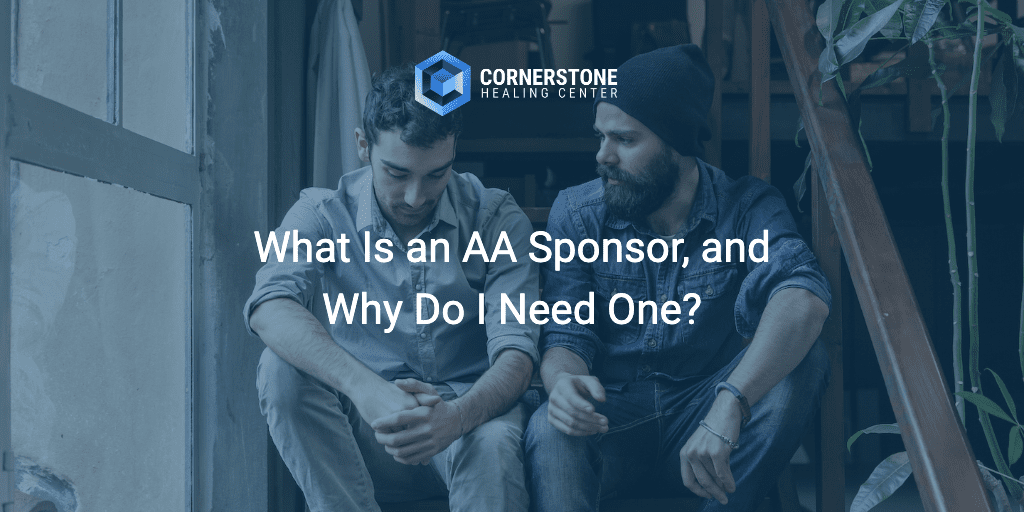What is an AA sponsor? Why do I need one? Getting sober is scary. At the point when you realize you need to get sober, perhaps the only thing scarier is staying loaded.
Fortunately, you don’t need to do it alone. Thus may consider an AA sponsor.
There are numerous 12-step fellowships — and sponsors within those fellowships — that can help.
Searching for help with drug and/or alcohol addiction? Call us now at (888) 201-4610.
What Is a 12-Step Fellowship?
The 12 steps are a set of principles that help people abstain from a wide variety of compulsive behaviors, including alcoholism and drug addiction. The steps are a set of suggestions on actions to take (steps) to solve the problem at hand.
A 12-step fellowship, then, is a group of people who have solved their problem using the steps, and they now meet regularly to continue living in the solution and to help others find it as well. People in 12-step fellowships help one another stay sober.
The first 12-step program was Alcoholics Anonymous, founded in Akron, Ohio, in 1935. Over the years dozens more have formed, including Crystal Meth Anonymous, Cocaine Anonymous, Narcotics Anonymous, Heroin Anonymous, Pills Anonymous, and Marijuana Anonymous. There are 12-step fellowships all over the world, and millions of people have found recovery using the 12-step program of action.
What Is a 12-Step AA Sponsor?
When you start going to 12–step meetings, you’ll hear people tell you that you need to get a sponsor. In fact, you’ll hear a lot of people tell you that.
A lot.
And here’s why: It’s a good idea.
A sponsor is someone who has achieved sobriety through working the steps and is now willing to take other people through the steps, so that they, too, can find sobriety. They serve as a guide, offering suggestions, answering questions, and explaining that which may be confusing.
You wouldn’t go through the jungle without a guide, right? That’s what a sponsor is. They’re your guide for this exciting and scary journey you’re embarking on — recovery.
Hang on. It’s a trip. But so, so worth it.
What Will You Do With an AA Sponsor?
Once you have found a sponsor that you click with, working with them can be an incredibly valuable experience. Your sponsor will serve as a sounding board for your thoughts and feelings, and can offer helpful advice and guidance when it comes to your sobriety.
AA sponsors will also be there to provide support during difficult times, and to celebrate your successes with you. In short, working with a sponsor through Alcoholics Anonymous can be a transformative experience that helps you to achieve and maintain sobriety.
How Having an AA Sponsor Can Benefit You
When you become a member of Alcoholics Anonymous, you are strongly encouraged to find a sponsor. A sponsor is an AA member with experience staying sober and can offer guidance and support during your journey.
Many people find that having a sponsor is incredibly beneficial. For one thing, a sponsor can provide much-needed accountability. It can be all too easy to relapse when you’re trying to go it alone, but having someone to check in with regularly can help you stay on track.
In addition, a sponsor can offer invaluable advice and support when you’re struggling. If you’re ever feeling tempted to drink, your sponsor will be there to talk you through it. Ultimately, having a sponsor is one of the best things you can do for your sobriety.
Words on Sponsorship and AA Sponsors
“It was not my idea to find a sponsor,” says Jeff M., an alcoholic in Phoenix, Arizona. “It was a requirement of the sober living facility I was at. I assumed a sponsor would try to tell me what to do. He would be controlling. He would be lord over me. I definitely was fearful.
“Instead of trying to rule over me, he simply turned out to be my guide on my journey through the Big Book, the 12 steps, and on my way to a Higher Power. He shared his experience on how he had been guided through the process.
“This man helped me to get to where I am in my journey and in life today. I have 20 months clean and sober. And now I, in turn, try to carry this message to other alcoholics.”
“Instead of trying to rule over me, he simply turned out to be my guide on my journey through the Big Book, the 12 steps, and on my way to a Higher Power. He shared his experience on how he had been guided through the process.
Jeff M.
Many sponsors become trusted friends. Some of us tell our sponsors things we have never said to another human being. We let our guard down, perhaps for the first time in our lives.
“My sponsor not only sees me as I am and who I will be, but he is also able to show me both of those things through his experience and his sense of humor,” says Austin P., a recovered addict from Gilbert, Arizona. “I am blind to both. I can only see a hopeless and incomprehensibly demoralized loser. I need his eyes for the upcoming crossroads! I need his heart to feel worthy … to feel loved!”
Get a sponsor.
Get Help for Addiction at Cornerstone
Cornerstone Healing Center is a drug and alcohol treatment center in Scottsdale, Arizona. We combine evidence-based, long-term treatment with 12-step recovery and spirituality for a holistic approach that works. If you or someone you love is struggling with addiction, please reach out. We can help. Call us today.


